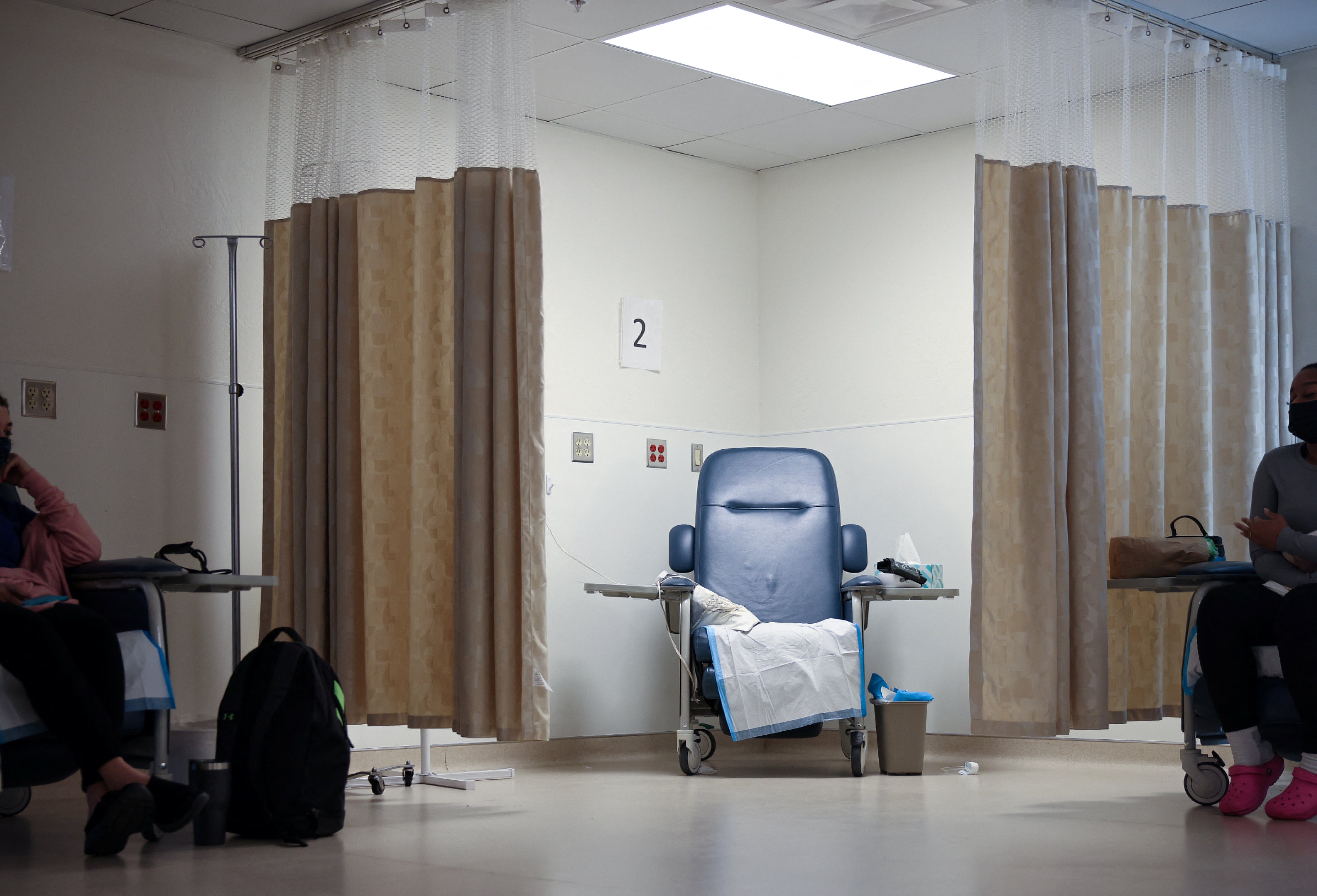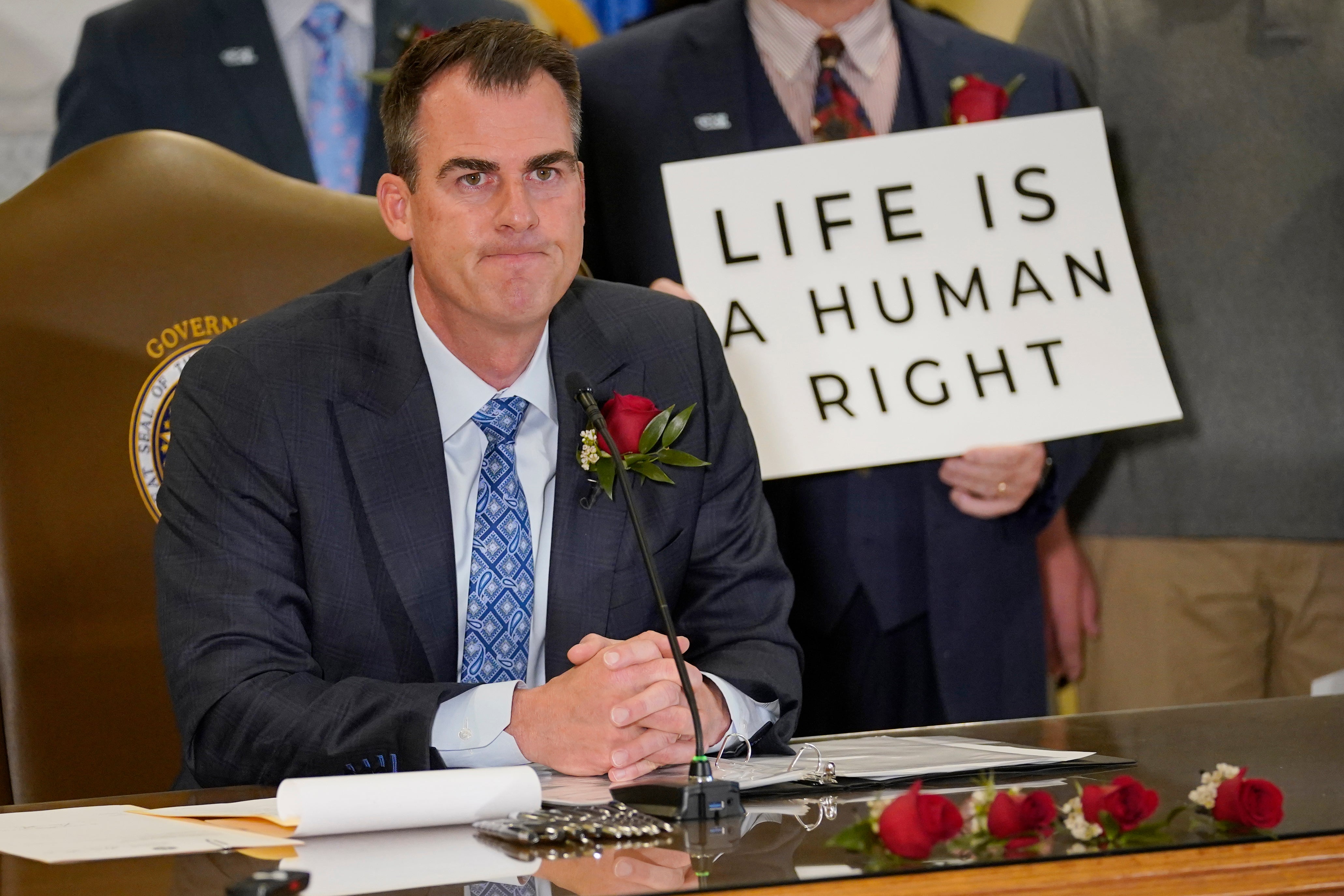Oklahoma’s Supreme Court struck down two abortion bans. But a 113-year-old law is severely restricting access
A state law from 1910 threatens abortion providers with a felony punishable up to five years in prison, writes Alex Woodward


Your support helps us to tell the story
From reproductive rights to climate change to Big Tech, The Independent is on the ground when the story is developing. Whether it's investigating the financials of Elon Musk's pro-Trump PAC or producing our latest documentary, 'The A Word', which shines a light on the American women fighting for reproductive rights, we know how important it is to parse out the facts from the messaging.
At such a critical moment in US history, we need reporters on the ground. Your donation allows us to keep sending journalists to speak to both sides of the story.
The Independent is trusted by Americans across the entire political spectrum. And unlike many other quality news outlets, we choose not to lock Americans out of our reporting and analysis with paywalls. We believe quality journalism should be available to everyone, paid for by those who can afford it.
Your support makes all the difference.Weeks before the US Supreme Court overturned Roe v Wade last year, Oklahoma’s Republican governor vowed to “outlaw” abortion in the state entirely, and pledged to sign any legislation that promised to do just that.
Governor Kevin Stitt signed several anti-abortion bills into law, including a measure that outlaws abortion at roughly six weeks of pregnancy, and another banning all abortions with exceptions only to save the patient’s life in a medical emergency or if the pregnancy is the result of rape, sexual assault or incest that has been reported to law enforcement.
On 31 May, the highest court in the state struck down both of them.
But abortion access remains out of reach for most patients in the state, after that same court upheld a far-reaching abortion ban from more than 100 years ago earlier this year. A state law from 1910 makes it a felony punishable up to five years in prison for anyone to perform or help someone seek an abortion unless to save the patient’s life.
“This ruling, while providing clarity in emergency situations, does not change the landscape of care significantly,” Emily Wales, president and CEO of Planned Parenthood Great Plains, said in a statement.
Oklahoma was the first state in the US to successfully outlaw abortion despite a constitutional right to abortion care that was affirmed by Roe v Wade.
But in March, the state’s Supreme Court ruled that the state’s constitution “creates an inherent right of a pregnant woman to terminate a pregnancy when necessary to preserve her life,” though the court declined to weigh in on whether the constitution protects abortion access in other circumstances.
The court also ruled that doctors should be able to use their own medical judgment to determine whether to provide an abortion when a patient’s life is at risk “due to the pregnancy itself or due to a medical condition that the woman is either currently suffering from or likely to suffer from during the pregnancy.”
But it also preserved the 1910 law, a 113-year-old ban on abortion care that threatens providers with prison.
The court’s decision on 31 May reaffirmed its decision recognising a right to abortion care in life-threatening cases, and struck down two the overlapping bans.

In the months after the Supreme Court’s decision in Dobbs v Jackson Women’s Health Organization, which struck down a constitutional right to abortion care, clinics in Oklahoma have been forced to close, and patients have traveled thousands of miles for legal abortion care in a region surrounded by states where abortion is severely restricted or effectively outlawed.
Even in cases of emergencies, there appears to be no hospital in Oklahoma that provides “clear, consistent policies for emergency obstetric care to pregnant patients,” according to an April report from Physicians for Human Rights, Oklahoma Call for Reproductive Justice and the Center for Reproductive Rights.
Oklahoma hospitals “offered opaque, contradictory, and incorrect information about abortion availability and approval processes in obstetric emergencies, as well as little reassurance that clinicians’ medical judgment and pregnant patients’ needs would be prioritized,” according to the report.
Only two out of 24 hospitals described providing legal support for providers in such situations, and representatives for three hospitals claimed their facilities do not provide abortions at all, the report found.
Abortion rights advocates welcomed the court’s decision on 31 May, which abortion rights advocates said will at least allow doctors to clearly rely on their own medical judgment to provide care when a patient’s life is in jeopardy.
“After months of uncertainty and chaos, Oklahomans should finally be able to access the life-saving care they need in their home state,” according to Dr Alan Braid, an abortion provider and plaintiff in the case challenging the overlapping abortion bans.
“Heartbreakingly, we were forced to close our Tulsa clinic due to Oklahoma’s abortion bans, but I will continue to serve patients in the region at clinics in Illinois and New Mexico,” he added.
“While we are relieved the court upheld the right to abortion in medical emergencies, this does not diminish the fact that care remains out of reach for the majority of Oklahomans,” according to Ms Wales.
Following the state Supreme Court decision on 31 May, Oklahoma Attorney General Gentner Drummond clarified that “except for certain circumstances outlined in that statute, abortion is still unlawful in the state of Oklahoma” because of the 1910 law.
Governor Stitt accused the court of using “activism to create a right to an abortion in Oklahoma.”
“This court has once more over-involved itself in the state’s democratic process, and has interceded to undo legislation created by the will of the people,” he said in a statement.
Within the last year, more than a dozen states – including most of the entire US South – have outlawed abortion care for most pregnancies.




Join our commenting forum
Join thought-provoking conversations, follow other Independent readers and see their replies
Comments